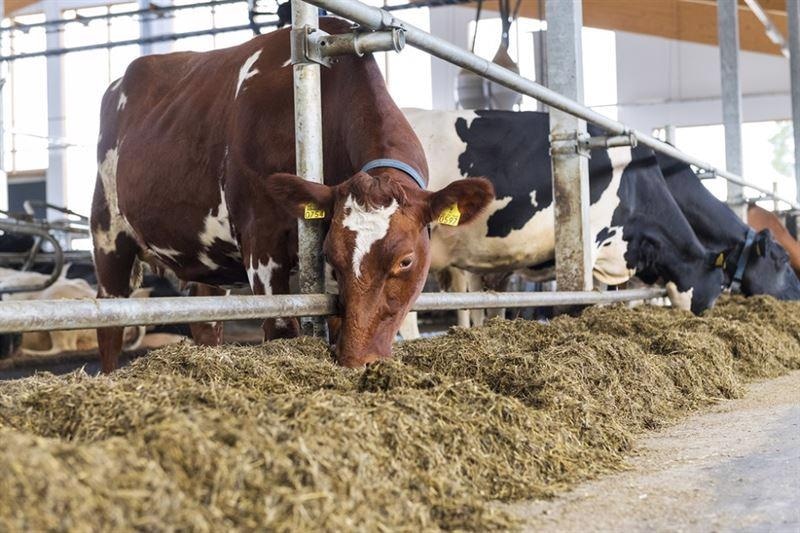Valio and Atria were the first in Finland early this year to test Bovaer®, a feed additive made by the Dutch company DSM. The additive has proved to reduce methane emissions produced by cows by 30 percent. The additive has generated promising results in farm trials in Europe and North America. During the 12-week test period, 400 cows at three different Valio dairy farms received feed containing the Bovaer® additive. Bovaer® recently received permission to be marketed in the EU.

Image Credit: Valio Ltd
The feed trial carried out by Valio and Atria’s subsidiary A-Rehu is the first time that the Bovaer® additive has been used in feeding dairy cows in Finland. The goal of the pilot was to collect practical experiences on the use of the additive in feeding cows.
“During the pilot period, the cows’ milk production remained normal and no changes were detected in the composition of the milk. Nor was anything unusual detected in the cows’ behaviour and welfare. Based on the results of the pilot, the additive can be safely added to the cow feed,” says Valio’s Juha Nousiainen, Senior Vice President, Carbon-neutral Milk Chain.
“The additive has been studied around the world for a decade and is used in South America. There are extensive feed trials underway in Europe, New Zealand and Canada. The Finnish farms participating in the pilot were openly interested in the feed trial,” notes A-Rehu’s Development Manager Milja Heikkinen.
Methane is a Digestive By-product of Fibrous Grass Feed
When a cow eats, the microbes in its rumen digest the feed, releasing hydrogen and carbon dioxide. Since hydrogen in large quantities is harmful to the microbes and the cow, the enzymatic activity in the rumen combines the hydrogen and carbon dioxide into methane, which the cow burps as it ruminates.
“Bovaer® prevents the enzyme from working, so no methane is produced. The additive makes it possible to annually reduce about 1,000 kg of CO2-eq per cow. The additive reduces the carbon footprint of milk by about 10–15 percent,” Juha Nousiainen says.
Like carbon dioxide, methane is a greenhouse gas that has a shorter warming effect in the atmosphere, about 10 years, but it is about 28 times more potent.
“A cow burps an average of 400 litres of methane a day. About 18–22 grams of methane per milk kilo is generated, when calculated from calf to adulthood. The methane produced in the rumens of dairy cows accounts for about 2.5 percent of Finland’s greenhouse gases,” Juha Nousiainen notes.
“Over 30 percent of the beef procured by Atria comes from dairy farms. Reducing methane has a clear impact on the carbon footprint of beef and milk. The additive as a whole thus plays a significant role in terms of the environmental impacts of primary production,” says Atria’s Sinikka Hassinen, Director of Beef Procurement.
Feed Additive can Reduce Methane Emissions by One Third
“Cattle make it possible for us to produce high-quality food products also in northern fields where grass grows well but food crops don’t always produce sufficient yields. We have significant opportunities to reduce methane. When combining the best-known additive technology, improving cow welfare, and new opportunities provided by animal breeding, the amount of methane per kilo of milk produced can be significantly reduced over the next 15 years,” Juha Nousiainen concludes.
The feed project in Finland was authorised by the Finnish Food Authority. The safety of the feed’s active ingredient, 3-Nitrooxypropanol (3-NOP), has been studied extensively with animals, consumers, farms and in the environment, with no adverse effects discovered.
For now, the European Food Safety Authority’s decision on use of the Bovaer® additive applies only to dairy cows. Approval for cattle raised for beef production is expected in the upcoming years, and feed trials are underway in Canada and other countries.